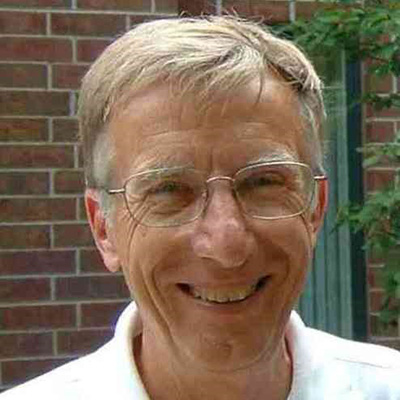In memoriam: Donald J. Graves
Donald John Graves, a biochemist and educator, died June 21 in Woodbury, Minnesota, at the age of 90. He was a member of the American Society for Biochemistry and Molecular Biology for almost 60 years, a former member of the Journal of Biological Chemistry editorial board.

Born on October 15, 1933, in Evanston, Illinois, Graves was the second son of Fred and Pearl Graves, immigrants from Lithuania and Poland. Raised in a small Chicago apartment, he grew up passionate about baseball and science, influenced by his supportive parents and teachers, according to a family obituary. He excelled in school, graduating from Evanston High School in 1951, and became the first member of his family to attend college.
Graves earned his undergraduate degree at the University of Illinois Urbana–Champaign. At the University of Washington, he conducted research as a graduate student under Nobel laureates Edwin Krebs and Edmond Fischer. In 1959, he earned his Ph.D. in biochemistry and began a postdoctoral fellowship at the University of Minnesota.
In 1961, Graves joined Iowa State University as a founding member of the biochemistry department. Over his 39-year career there, he became a distinguished professor, shaping the department and helping design the Molecular Biology Building. He was the first ISU faculty member to receive the National Institutes of Health Career Development Award. After retiring to California in 2000, Graves volunteered at the University of California Santa Barbara, where he mentored graduate students and researched cinnamon's bioactive compounds.
In his research Graves made discoveries in enzyme regulation and glycogen metabolism. Notably, in his later work at UC Santa Barbara and the U.S. Department of Agriculture, he uncovered the potential of compounds in cinnamon to enhance insulin’s effectiveness, presenting a promising new approach to treat Type 2 diabetes. His studies showed that these natural compounds could lower blood glucose and cholesterol levels, suggesting cinnamon might become a cost-effective and widely accessible treatment. Graves also made contributions to Alzheimer's research, finding that specific components of cinnamon could inhibit the formation of damaging protein tangles in the brain, a key feature of Alzheimer's disease.
Graves was known for his kindness and commitment to mentorship. He supported many students and researchers and advocated for diversity and community involvement. He and his wife, Marge, co-sponsored a Vietnamese family and hosted exchange students, showing their dedication to global connections. A lifelong runner, he completed three marathons and numerous half marathons, continuing to run into his late 60s. After surviving prostate cancer, he founded a foot race to raise awareness and funds for that disease.
Donald Graves is survived by his wife of 66 years, Marge; his five children, Brian and his wife Jody, Lee and his wife Lori, Stephen and his wife Amy, Ann and her husband David, and Paul and his wife Fumika; and his numerous grandchildren and great-grandchildren.
Enjoy reading ASBMB Today?
Become a member to receive the print edition four times a year and the digital edition monthly.
Learn moreGet the latest from ASBMB Today
Enter your email address, and we’ll send you a weekly email with recent articles, interviews and more.
Latest in People
People highlights or most popular articles

From humble beginnings to unlocking lysosomal secrets
Monther Abu–Remaileh will receive the ASBMB’s 2026 Walter A. Shaw Young Investigator Award in Lipid Research at the ASBMB Annual Meeting, March 7-10 in Washington, D.C.

Chemistry meets biology to thwart parasites
Margaret Phillips will receive the Alice and C. C. Wang Award in Molecular Parasitology at the ASBMB Annual Meeting, March 7-10 in Washington, D.C.

ASBMB announces 2026 JBC/Tabor awardees
The seven awardees are first authors of outstanding papers published in 2025 in the Journal of Biological Chemistry.

Decoding how bacteria flip host’s molecular switches
Kim Orth will receive the Earl and Thressa Stadtman Distinguished Scientists Award at the ASBMB Annual Meeting, March 7–10, just outside of Washington, D.C.

Thiam elected to EMBO
He was recognized during the EMBO Members’ Meeting in Heidelberg, Germany, in October.

The timekeepers of proteostasis
Learn about the cover of the winter 2026 ASBMB Today issue, illustrated by ASBMB member Megan Mitchem.

